Investing in the future
In the second part of our interview with Tour de Langkawi race director Imran Abdullah, he tells...
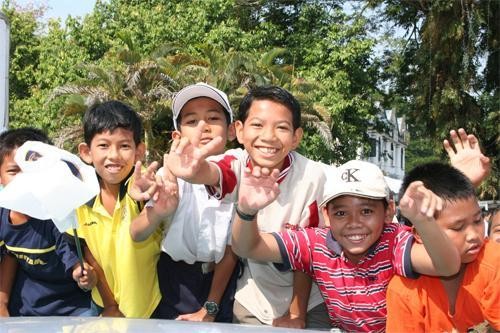
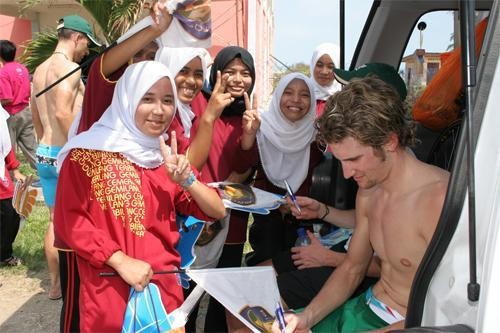
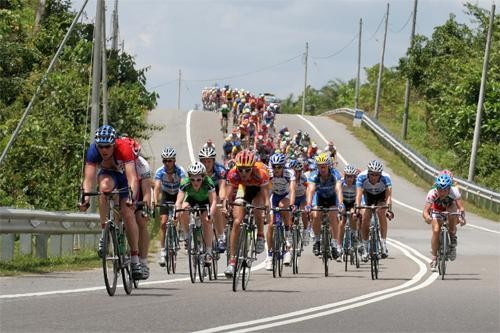
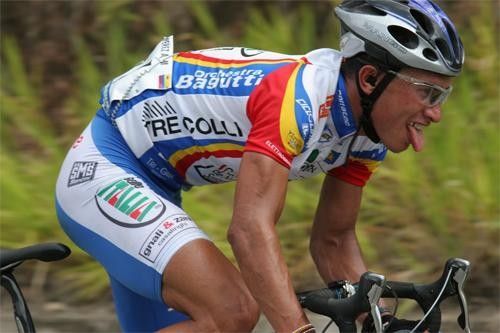
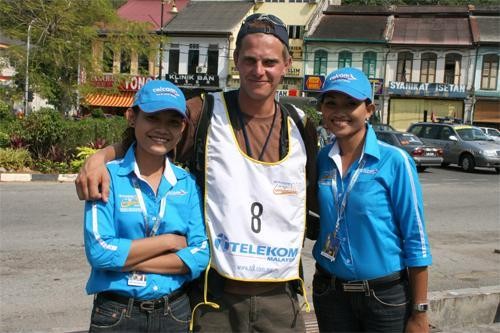
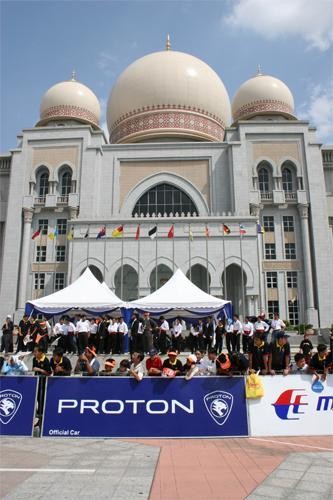
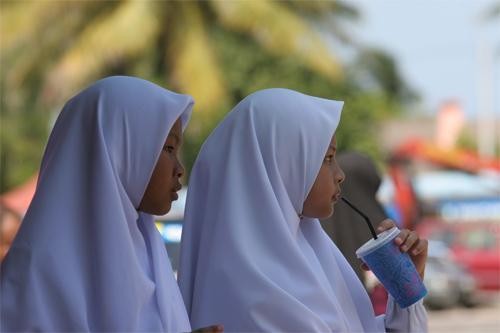
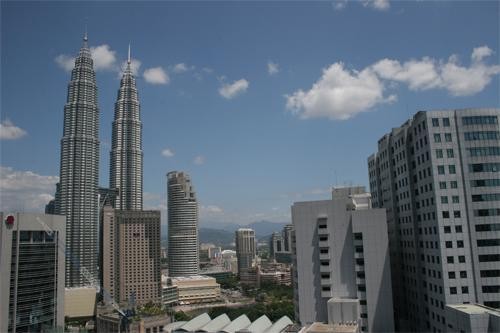
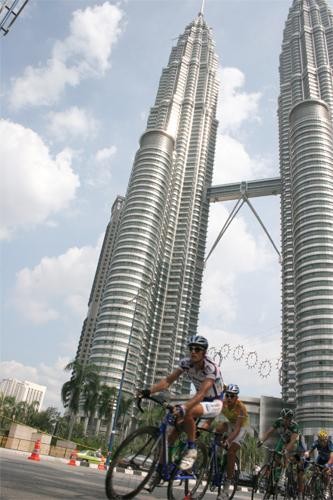
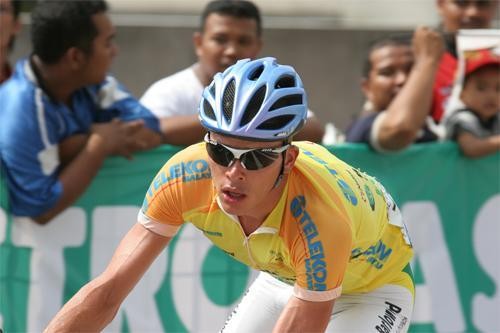
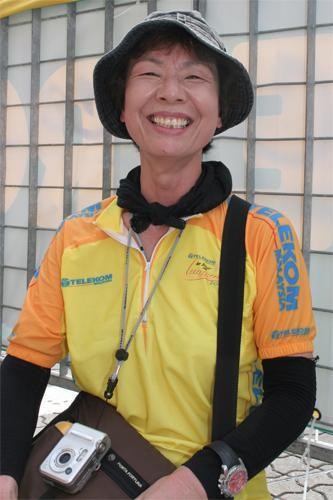
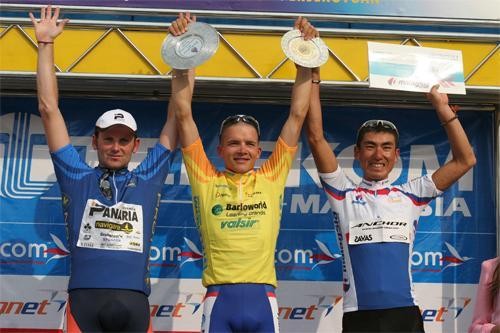
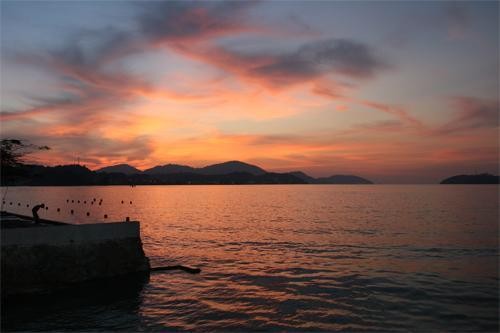
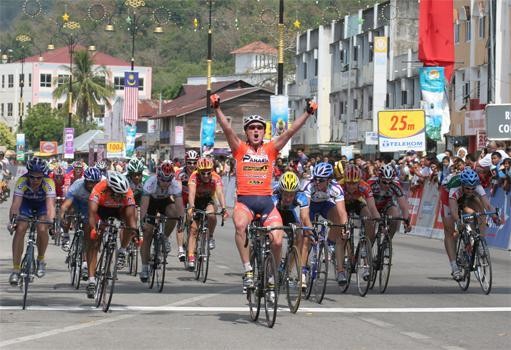
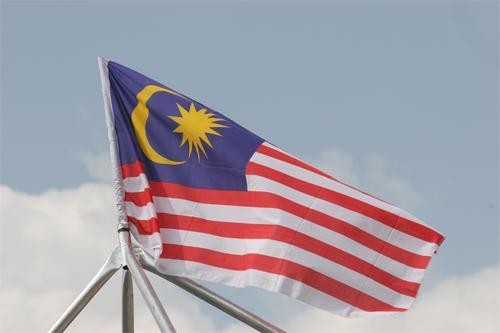
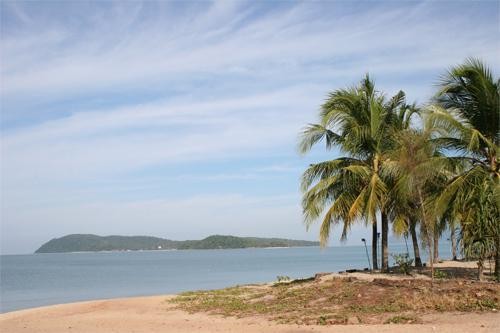
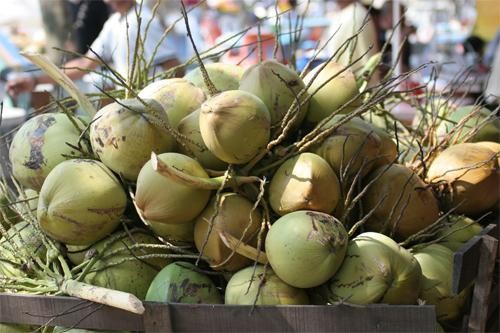
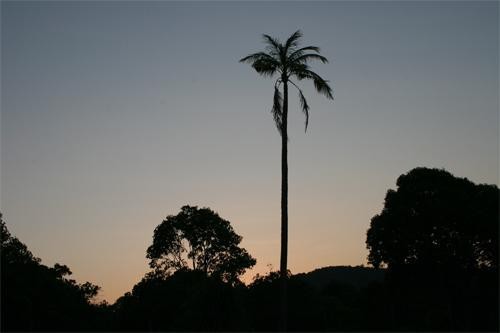
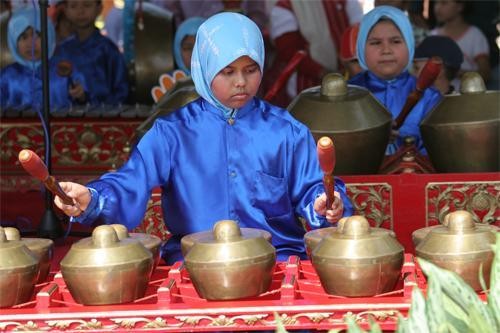
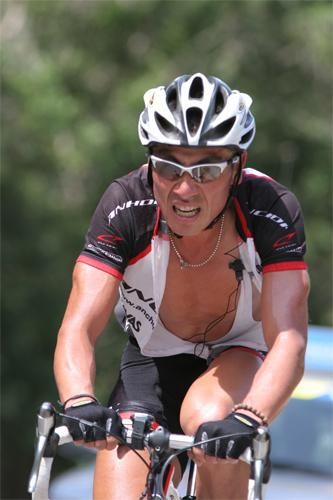

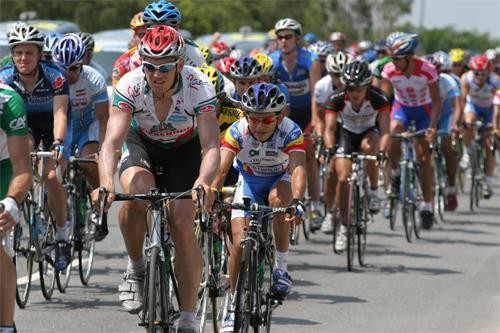
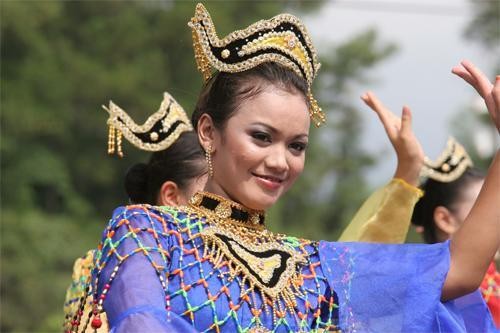
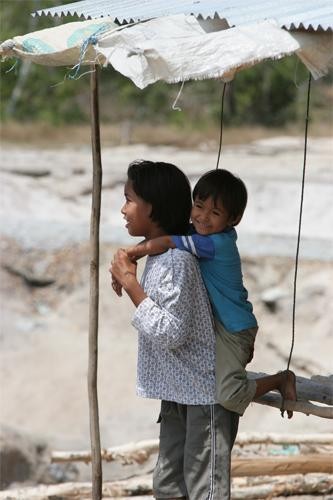
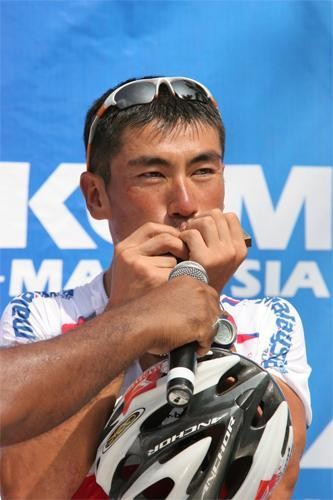
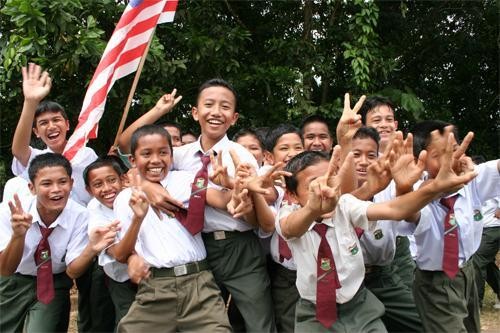













An interview with Tour de Langkawi race director Imran Abdullah, March 17, 2005
In the second part of our interview with Tour de Langkawi race director Imran Abdullah, he tells Shane Stokes about his plans for the future of the race, its chances of inclusion in the ProTour and the challenges of organising Asia's most expensive stage race. Part one is here.
Cyclingnews: Looking ahead, then, what would you like to see in the next five years?
Imran Abdullah: It has to be at two different levels. I think from the national point of view, because there is no structured calendar in this country where Malaysia's top cyclists can race regularly, they have to go overseas. Now, we have presented the package to the Ministry already which allows for Malaysians cyclist to go overseas at a relatively small cost and base themselves somewhere like Belgium for a number of months before returning to Asia. We feel that this is a fast-track way to development, if you like.
That is at the high end. Lower down the rungs, if you like, we need to start developing a cycling culture in this country. It starts as a form of transport, it starts in the schools with the kids and with getting them into bikes and into the spirit of competition, giving them an outlet to channel their interest and their energies.
CN: What effect do you think that Tour de Langkawi has had on the country? Is it a good catalyst for growth in cycling, for motivating the people in Malaysia?
IA: In a way; we are 10 years old now and I think the local viewpoint tends to be a case of 'look, let's develop the status so that we are ranked among one of the best races in the world.' I take a slightly different approach in that, whilst our status is important and we are now a Hors-categorie event on the Asian calendar and we are highly regarded on the world scene, I think it is more important to focus inwards and develop our own scene. Le Tour de Langkawi is, I believe, about balance now.
Get The Leadout Newsletter
The latest race content, interviews, features, reviews and expert buying guides, direct to your inbox!
As you saw this year, we had the likes of the Discovery Channel team, we had Liberty Seguros and others - there was quite a handful of ProTour teams as well as high-ranking [Continental Pro] teams. I think we have to balance that with the Asian teams so that we do offer an opportunity for Asian teams to ride with the best. I think from a participation point of view, it can be quite daunting for an Asian team to line out with the likes of these teams. However, given the fact that we are at the beginning of the year and that, for a lot of the European teams, the race is more like a preparation ride to get rid of the rust after Christmas and New Year, it is a bit more manageable. That said, judging by the speeds that we run off at, some people take it very, very seriously.
I would hope that we are an inspiration for Asian cyclists, but that will only come about when Asian cycling starts to do well in this event. It needs its heroes and it needs characters that it can relate to. This year, Koji Fukushima had a great following and a great support locally from the Malaysian people because they identified with him as being an Asian rider, and competing with some of the best riders in the world. So it was good.
CN: This year was your first at the helm, taking over as managing director of the race organisation. Were you happy with the way things went?
IA: I am highly self-critical, but I was generally happy with the way things went. We had quite a number of challenges, of course, but I think overall we were delighted. We had great crowds, we had great weather, we had some great racing. Okay, we saw Graeme Brown win quite a number of stages. it would have been nice if we had a few more sprinters to mix things up a little bit for him. But I think overall, we had a worthy winner and certainly from an organisation point of view and an operations point of view, things were probably the best that they have ever been, in terms of how smooth things went. Our sponsors were delighted. So, all in all, objectives have been met.
CN: You had a limited amount of time to prepare for the race. Did that in itself throw up particular challenges?
IA: It did. At the end of the day, with events of this scale things unfortunately come down to money. We did have a limited amount of time to go out there and sell this event to the sponsors. We thankfully have a faithful group of partners who have supported us all these years, and that makes things easier.
The other thing is, whilst I did take over, I did inherit quite an established team of local Malaysians who are very familiar with this event and they have worked on this event for some years now. So for me that made things a lot more straightforward. Whilst I am wearing the big hat, those on the ground are the same people and therefore consistency made things a lot easier.
CN: You obviously have more time to prepare for the 2006 edition, you will have the full year to get ready. Do you think that will make it easier to secure the amount of money that you want to run the race?
IA: Absolutely. In addition, one of the main things that I have been trying to do is to make this event more cost-efficient. So whilst we are talking in raising money, the same time we have to make events of this nature more easy on the pocket. They are not cheap to run, it requires a few million dollars and so is quite substantial by any means. We have got more time but, that said, we shouldn't be complacent. As regards planning, we are already looking at routes for next year.
In terms of time for partners, yes, it does make a world of difference to have that extra lead-in time and it enables them to do more things with the event.
CN: The race has a new ranking this year and a new position with the evolution of the Continental Calendars. Do you think that was positive for the race?
IA: Very much so. As I said you earlier, Malaysians are very proud and they consider that for a national event such as this to be ranked as high as it is, it is a great achievement and a great accolade. For us, I think it is important to retain the Asian identity. This is why we are very proud and very pleased to be part of this new Asian calendar. I think even if ProTour status was offered to us, we would have serious reservations.
That's not because we don't think the ProTour is a good idea; as organisers we think it is a positive step for the sport. However, if we did become part of it we would lose the opportunity to run the Asian teams, plus there would also be the cost implications of bringing over 18 to 20 of the top teams. So there are pros and cons, but certainly from our point of view our new position and a new status certainly serves this event in the best possible way.
CN: You attracted the strongest ever line-up this year. Was that down to the new ranking and the restructured calendar?
IA: I think it was. In fact, I would have no doubt in stating that. I think a lot of the teams now - certainly the ProTour teams - have to seriously look at the way they structure their calendars, given the fact that a lot of them start in Paris-Nice. They do need world-class preparation events and I think that for teams of that level, that is how we best position ourselves.
We look at what we are, we look at our identity - we are a 10-day stage race, we have quite a balanced route, although we have some mountains in it. We therefore target who our team participation is. If you look at the big Tour teams, the likes of Discovery Channel and Liberty Seguros, why do we go out to attract them or why were they attracted to this event? Well, further down the line, as they look towards July and September and also the Giro d'Italia, this sort of event actually works very much in favour for the type of riders who will be riding that sort of event. So there fore we had a very positive response, an incredible response, from the top Tour teams. And let's face it, they don't come much bigger than Discovery and Liberty Seguros. We were delighted with that.
At the same time, we keep a balance and we try to mix it up a little bit in that we bridge the gap between the likes of Discovery and the likes of Indonesia and Malaysia and the Philippines and so on.
CN: How would you like to see the Tour de Langkawi evolve over the next few years?
IA: I would certainly like to see more Asian winners. If not in terms of the overall, certainly with regards to stages. I think it is a question of confidence and a question of the scene here actually improving, in terms of the number of high-level cycling events increasing. I'm talking about events such as the Tour of Qinghai Lake and the Tour of Qatar, that Asian riders are still able to participate in those. But this structured calendar formulated by the UCI actually benefits the Asian riders, to a level whereby they can compete with the European teams in this event, even if it is just in this event. I think that is vital to us as organisers because, to be quite frank, if we don't start to show that this event is benefiting Asian riders then it is a little bit tricky to put on the race for the benefit of European riders each year.
CN: And I guess that dovetails nicely with your other goal, in terms of elevating the whole Asian scene.
IA: Absolutely.
CN: What is your own background in the sport?
IA: Basically, I was a cyclist myself. At a young age I got into the organisation side of the sport, through Sport For Television with Mick Bennett and Alan Rushton. This was in the very early nineties with the Nissan Classic and the Kellogg's Tour of Britain. That extended then to races like the Tour de France.
I came out Asia in 1998 as a consultant for this event. That was my introduction to Asia. I was suitably impressed that I chose to come out here early in the year 2000 to look for a role in the sport event management industry. I went into golf for a number of years and then in the middle of last year, the founder of this event actually came to me and asked if I will be interested in taking it over. So, here I am today!
CN: You mentioned golf. What were you organising?
IA: Basically, I was the organiser of the Malaysian Open, a European Tour event. I was involved in other events such as the Hong Kong Open and the Singapore Masters too. They are pretty big events, actually.
CN: And you've certainly embraced the Malaysian culture. You are living there, you have married a Malaysian woman and taken a Muslim name, so it has obviously had a big effect on you.
IA: Absolutely. I have to say I am happy here. It is not just the sunshine. The people and the lifestyle here suits me. Okay, no matter where you go on the world people have their own preferences and there are problems as well, but at the same time I'm comfortable here and enjoy life here. I hope to be here for a long time to come!